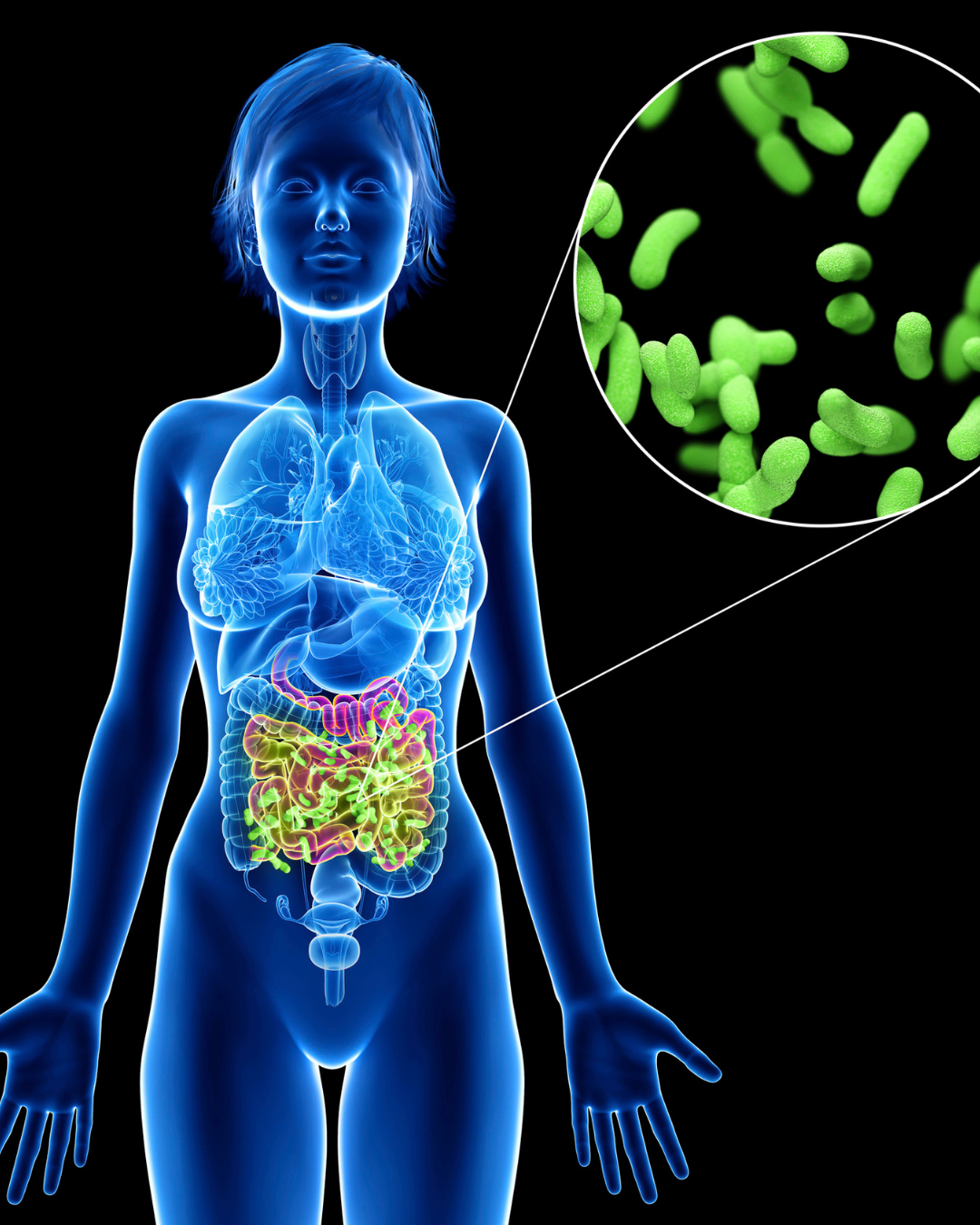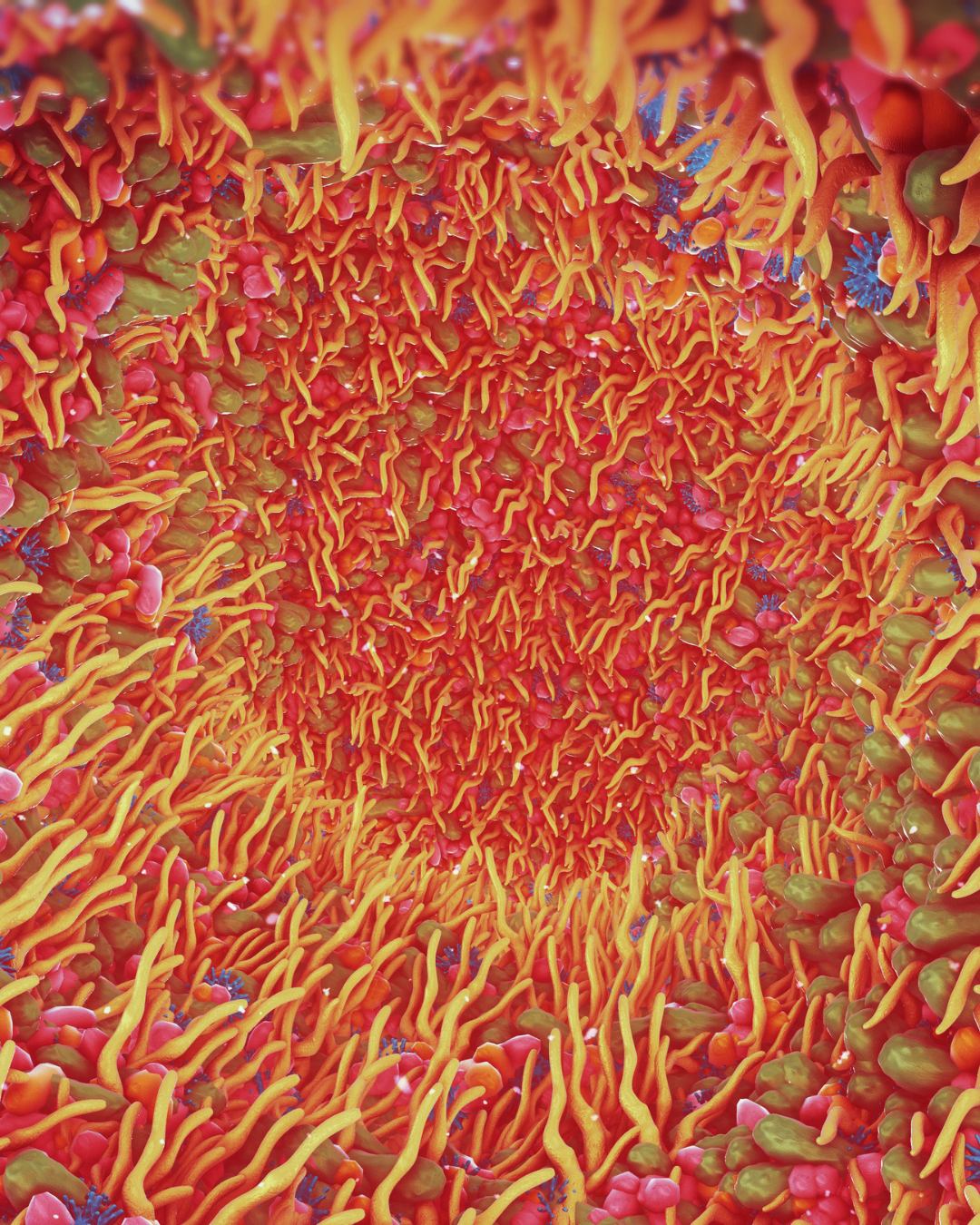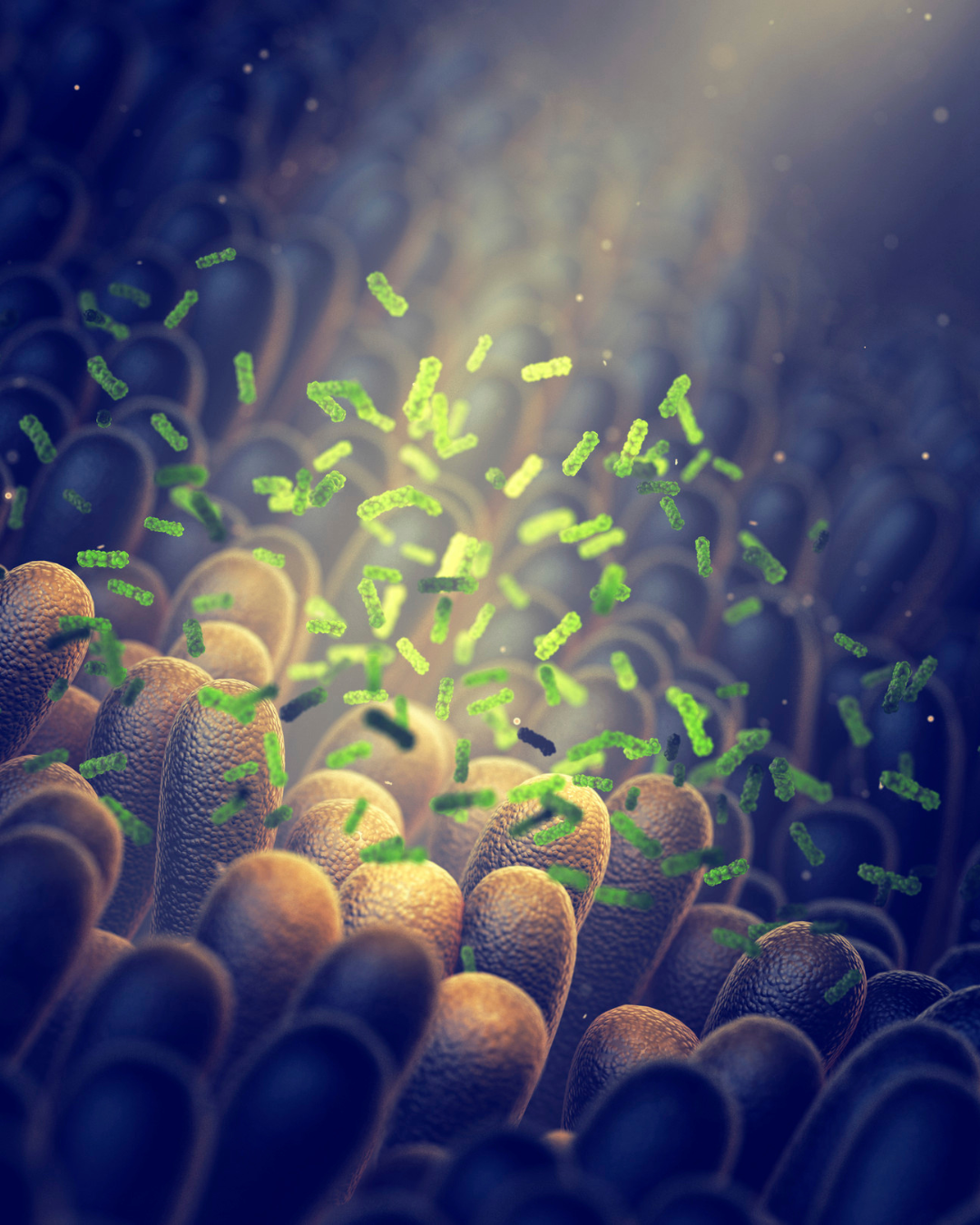
Why Gut Health Truly Matters
Your gut isn't just about digestion; it's a complex ecosystem teeming with billions of bacteria and microorganisms. This thriving community plays a pivotal role in your immune system, nutrient absorption, and even your mood.
Over 100 million Americans grapple with digestive issues, costing billions in treatments. More than 200 over-the-counter remedies often lead to further complications.
But here's the sobering truth: digestive problems ripple throughout your entire body. Allergies, arthritis, autoimmune diseases, skin issues, chronic fatigue, mood disorders, and even serious conditions like cancer can trace their roots to gut health.

So, it's not just about avoiding the occasional discomfort of bloating or heartburn. Your gut is central to your overall well-being, intricately connected to every aspect of your body's functioning. This is why addressing gut health is often the starting point in treating chronic health problems.
Your gut's health decides what nutrients get absorbed and which toxins, allergens, and microbes are kept at bay. It's the guardian of your body's health, and its integrity is vital.
Inside your gut resides a diverse ecosystem of around 500 species and approximately 3 pounds of bacteria. This bustling chemical factory aids digestion, produces essential vitamins, regulates hormones, detoxifies, and fosters gut healing. Imbalances, like too many harmful microbes or too few beneficial ones, can wreak havoc on your health.

Surprisingly, gut issues can manifest as seemingly unrelated problems like eczema, psoriasis, or arthritis. By focusing on your gut, you can improve these conditions.
Your gut hosts a microscopic barrier, just one cell thick, shielding your immune system from the inner 'sewer.' A damaged barrier can lead to an overactive immune response, causing inflammation throughout your body.
Your gut also boasts a 'second brain,' its own nervous system. It's rich in neurotransmitters, communicating bi-directionally with your brain. Any disruption in these messages can affect your overall health.
Moreover, your gut manages the disposal of metabolic byproducts, preventing toxic buildup. It also diligently breaks down food into essential components and transports nutrients into your bloodstream, ensuring your overall well-being.
Why Your Gut May Face Challenges:

Even in an ideal world, our gut encounters difficulties in maintaining balance. In today's reality, several factors disrupt our digestive system.
It's vital to realise that many diseases seemingly unrelated to the gut, such as eczema, psoriasis, or arthritis, can actually originate from gut issues. By focusing on gut health, you can take steps toward improvement.
-
Unhealthy Diets:
Our diets are often low in fibre, high in sugar, filled with processed wheat and loaded with processed, nutrient-poor, high-calorie foods. This fosters the growth of unfavourable bacteria and yeast in the gut, harming its delicate balance.
-
Medication Overuse:
The excessive use of medications like antibiotics, anti-inflammatories, acid-blocking drugs, and steroids can harm the gut or hinder normal digestive function.
-
Infections and Imbalances:
Chronic low-grade infections or gut imbalances, including bacterial overgrowth in the small intestine, yeast overgrowth, parasites, or more severe gut infections, can disrupt gut health.
-
Toxin Exposure:
Many people don't realise the damaging effects of toxins found in chemical household cleaning products on their gut. For example normal bleach has over 50 different chemicals that can effect the body. Toxins like mercury and mould can also damage the gut, further complicating its function.
-
Enzyme Deficiency:
Insufficient digestive enzyme function, often caused by the use of acid-blocking medications or zinc deficiency, can disrupt digestion.
-
Stress:
Stress has the power to alter the gut's nervous system, potentially leading to a leaky gut and changes in the gut's normal bacterial composition.

How to Support a Healthy Gut:
These practical steps can help you maintain a healthy gut and support your overall well-being. Incorporating our granola into your daily routine is an easy and delicious way to support your gut health. Packed with activated nuts, it not only tantalizes your taste buds but also provides the gut-friendly nutrients your body craves.
-
Choose Whole, Unprocessed Foods:
Opt for foods rich in fibre, such as non-sprayed organic vegetables, soaked or activated beans, nuts, seeds, and whole grains. If you eat meat opt for grass-fed, non-GMO grain meat or chicken, venison, or line-caught fish. As Michael Pollan, author of "The Omnivore's Dilemma," wisely put it, "Eat real food, mostly plants."
-
Consider an Elimination Diet:
If you are struggling with gut health issues or suspect food sensitivities or you have allergies, try an elimination diet. For a month eliminate gluten, dairy, yeast, grains, eggs, nightshade vegetables, coffee and alcohol from your diet. After one month observe how your gut feels and monitor changes in other symptoms. Slowly start to reintroduce the above one by one and leave a gap of 3 days in between each introduction.
-
Address Infections and Overgrowth:
If you have infections or overgrowth issues like parasites, small bowel bacteria, or yeast, seek appropriate treatment. Remember to do regular parasite cleanses.
-
Supplement with Digestive Enzymes:
Enhance digestion by taking digestive enzymes with your meals. This can be particularly helpful if you have enzyme deficiencies. Eating fermented food with your meals, such sauerkraut, will aid digestion and gut health.
-
Incorporate Probiotics:
Include probiotics in your routine to support a healthy gut ecosystem. Probiotics introduce beneficial bacteria to your gut. You can either take supplements or eating a range of fermented food which contain an arrange of good bacteria can be beneficial to your gut.
-
Consider Omega-3 Supplements:
Omega-3 fatty acid supplements can help reduce inflammation in the gut, promoting overall gut health.
-
Explore Gut-Healing Nutrients:
Nutrients like glutamine and zinc have gut-healing properties. Incorporate them into your diet or consult a healthcare professional for guidance.
